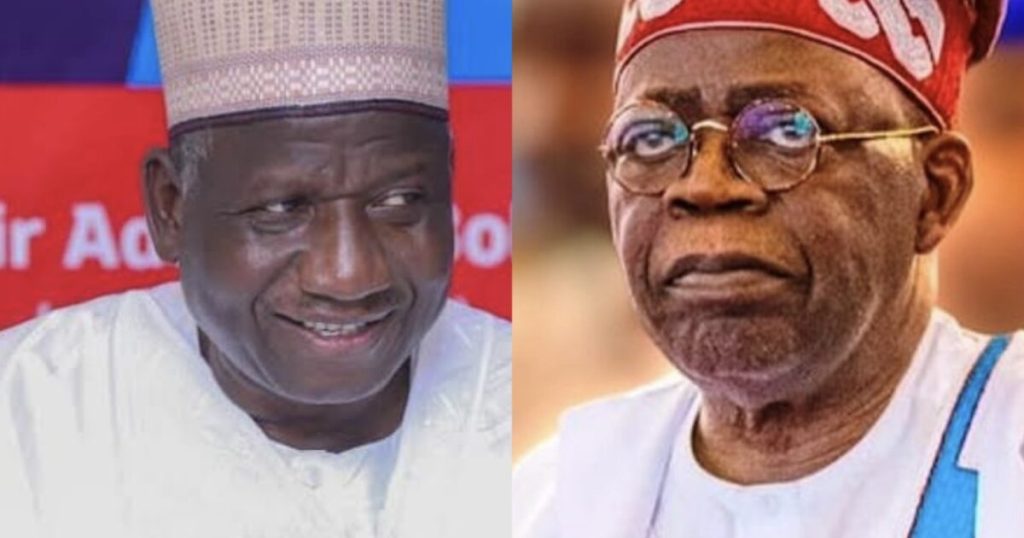The Action Democratic Party (ADP) has urged the National Assembly to amend the constitution to remove the President’s power to appoint the Chairman of the Independent National Electoral Commission (INEC) and the Inspector General of Police (IGP). The ADP argues that these appointments are crucial for ensuring free, fair, and credible elections, as well as maintaining law and order, and are therefore too sensitive to be subject to potential political influence from the executive branch. The party believes that the current system, where the President single-handedly appoints these key figures, creates room for bias and undermines the independence of these institutions. They advocate for a more transparent and participatory process involving diverse stakeholders to ensure the selection of impartial and competent individuals. This, they believe, would enhance public trust in the electoral process and the police force, ultimately strengthening democracy and promoting good governance.
The ADP’s call reflects broader concerns about the impartiality and effectiveness of INEC and the police, particularly during elections. Critics often point to instances of alleged partisan conduct by both institutions, potentially influenced by their allegiance to the appointing authority. The perception of bias, whether real or perceived, erodes public confidence and can contribute to electoral violence and post-election disputes. By removing the President’s direct control over these appointments, the ADP proposes to create a buffer against political interference, ensuring that the INEC Chairman and the IGP are accountable to the nation rather than to a single political figure. This, they believe, will foster a level playing field for all political actors and engender greater faith in the integrity of the electoral and law enforcement processes.
The proposed amendment aligns with the principles of separation of powers, a cornerstone of democratic governance. This principle aims to prevent the concentration of power in any one branch of government by distributing responsibilities among the executive, legislative, and judicial branches. Granting the President the sole authority to appoint key figures like the INEC Chairman and the IGP arguably gives the executive undue influence over institutions that should operate independently. By vesting the appointment power in a more representative body, such as the National Assembly or a specially constituted selection committee, the ADP’s proposal seeks to reinforce the separation of powers and strengthen the checks and balances that prevent abuse of authority.
The ADP’s recommendation for a more inclusive appointment process envisions a system where various stakeholders, including civil society organizations, professional bodies, and political parties, participate in the selection of the INEC Chairman and the IGP. This participatory approach aims to ensure that the chosen individuals possess not only the requisite qualifications and experience but also the integrity and impartiality necessary for these sensitive positions. A diverse selection panel, representing different interests and perspectives, can offer a more comprehensive assessment of candidates and reduce the likelihood of appointing individuals with pre-existing political biases. This broader representation also enhances transparency and public accountability in the selection process, fostering greater public trust in the eventual appointees.
The implementation of the ADP’s proposal would require a constitutional amendment, a process that demands significant political will and consensus-building. The National Assembly would need to initiate the amendment process, requiring a two-thirds majority vote in both chambers to pass. Subsequently, the amendment would require ratification by two-thirds of the state Houses of Assembly before becoming law. Given the potential implications for the balance of power between the executive and legislative branches, securing the necessary political support for such an amendment could prove challenging. However, successful implementation would represent a significant step towards strengthening democratic institutions and promoting good governance in Nigeria.
Beyond the constitutional amendment, the ADP’s proposal also necessitates careful consideration of the specific mechanisms for the new appointment process. The composition of the selection committee or the precise role of the National Assembly in the process would need to be clearly defined to ensure transparency and prevent the emergence of new avenues for political manipulation. Furthermore, robust safeguards against undue influence from any particular interest group would be essential. The success of the proposed reform hinges not only on removing the President’s sole appointment power but also on establishing a truly independent and transparent selection process that guarantees the appointment of competent and impartial individuals to these critical positions. This comprehensive approach is vital for enhancing the credibility of elections, strengthening the rule of law, and ultimately consolidating democratic values.


